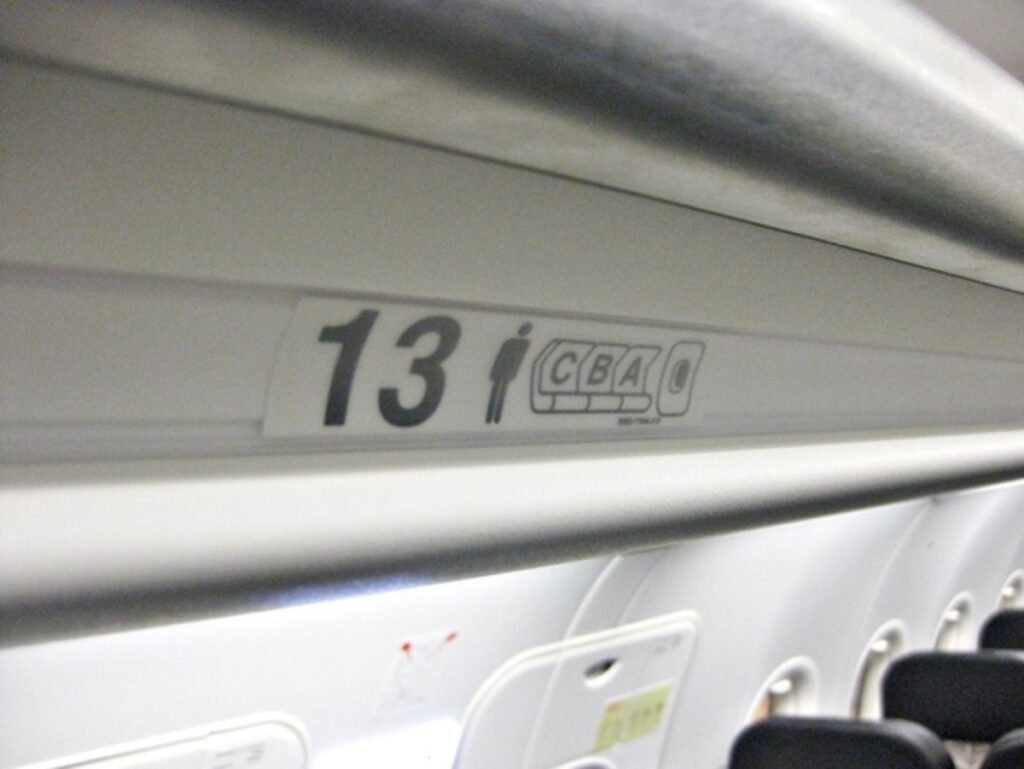Thirteen is regarded as an unlucky number in many cultures. One (probably unverifiable) hypothesis holds that 13 is a reflection of the human fear of the unknown, since it is the first number that cannot be enumerated using our 10 fingers and 2 feet. Unreasoned fear of the number 13 is termed triskaidekaphobia.
Due to this fear, some tall buildings have resorted to skipping the “thirteenth floor”, either by numbering it “14” (though it’s really still the thirteenth floor) or by designating the floor as “12a” or something similar. Similarly, some streets do not contain a house number 13. The thirteenth of a month is likewise ominous, particularly when it falls on a Friday (see Friday the 13th), a Tuesday in the Greek and Spanish-speaking world, or a Monday in Russia. Months with a Friday the 13th always begin on a Sunday.
Thats the same reason 13 is omitted in many commercial airlines,to comfort passengers of their safety;not really a big deal.
Numerous airlines have chosen to omit row 13 from their aircraft, primarily because this number carries an unfortunate connotation in various cultures, instilling superstitions among their passengers. This fear of the number 13, known as triskaidekaphobia, may seem irrational, but airlines strive to avoid triggering these beliefs in their customers.
Despite the prevalence of triskaidekaphobia, certain airlines, including American, Delta, Southwest, and JetBlue, have decided to include Row 13 in their seating arrangements, defying this superstition. Moreover, in line with cultural sensitivities, some airlines have also chosen to skip rows numbers 14 and 17. The motivations behind these omissions vary, aiming to respect passengers’ cultural beliefs, enhance their comfort, or reorganize the seating layout.






